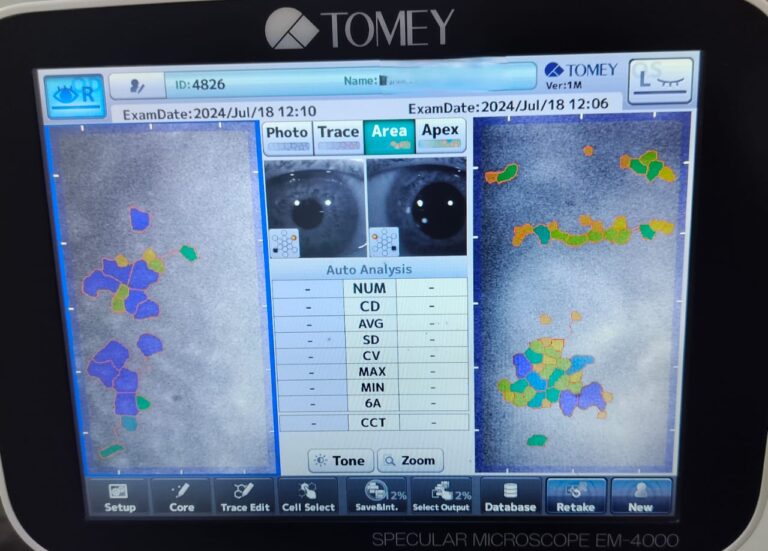Fuchs Dystrophy
Fuchs’ Dystrophy is usually a genetic disease that affects the corneas of both the eyes. The inner layer of the cornea known as the endothelium is responsible for the protection and good health of the cornea. As this disease progresses, the cells of the corneal endothelium deteriorate or reduce in number, this causes fluid buildup in the cornea, which results in swelling also known as corneal edema, this leads to blurring of vision, glare and in general eye discomfort.
Fuchs’ Dystrophy stages
Early stage :
Fuchs’ Dystrophy usually occurs in 2 stages, in the early or first stages the person experiences blurring of vision or hazy vision usually only in the morning upon waking up and as the day passes the vision gets clearer.
Later stage:
The later or second stage however causes blurring of vision for longer time periods almost throughout the day.
A person in their 20’s, 30’s, or 40’s may have Fuchs’ dystrophy but will not realize it, after the age of 50 people are more likely to be troubled by it.
Diagnosis of Fuchs’ Dystrophy
Fuchs’ dystrophy can be diagnosed by an ophthalmologist during a routine eye examination using a slit lamp. The corneal thickness can also be measured with a test called the Corneal Pachymetry. The number of endothelial cells can also be measured using a scan called the Specular Microscopy.

Symptoms of Fuchs’ Dystrophy
One can be on the lookout for the symptoms especially if they have a family history of Fuchs’ Dystrophy, the symptoms are as follows:
Treatment and Surgical Options:
Fuchs’ Dystrophy cannot be reversed, but it can be managed especially in the early stages by eye drops or eye ointments. On extreme vision impairment and advancement of the disease, the ophthalmologist may suggest corneal surgery such as Corneal Transplant Surgery or Endothelial Keratoplasty.
Jehan Eye Clinic is a center for skilled clinical excellence, and aims at being at par with the latest technology at all times. It is headed by Dr Kareeshma Wadia-Havewala, who is a specialist in Cataract, Cornea and Refractive Surgeries.
Quick Links
Contacts
- 302, D-Square, Dadabhai Road,Opp. C.N.M. School, Vile Parle West,Mumbai - 400056.
- +91 7045658586
- jehaneyeclinic@gmail.com
